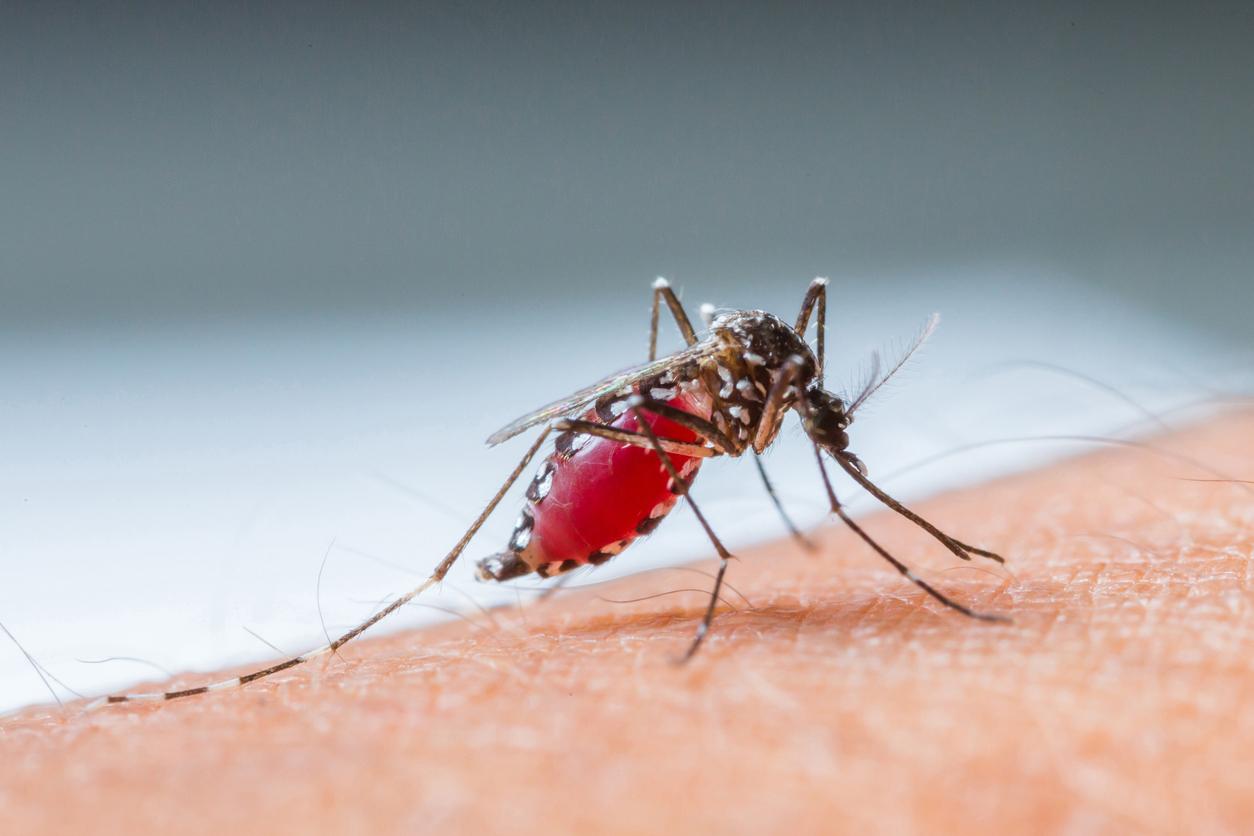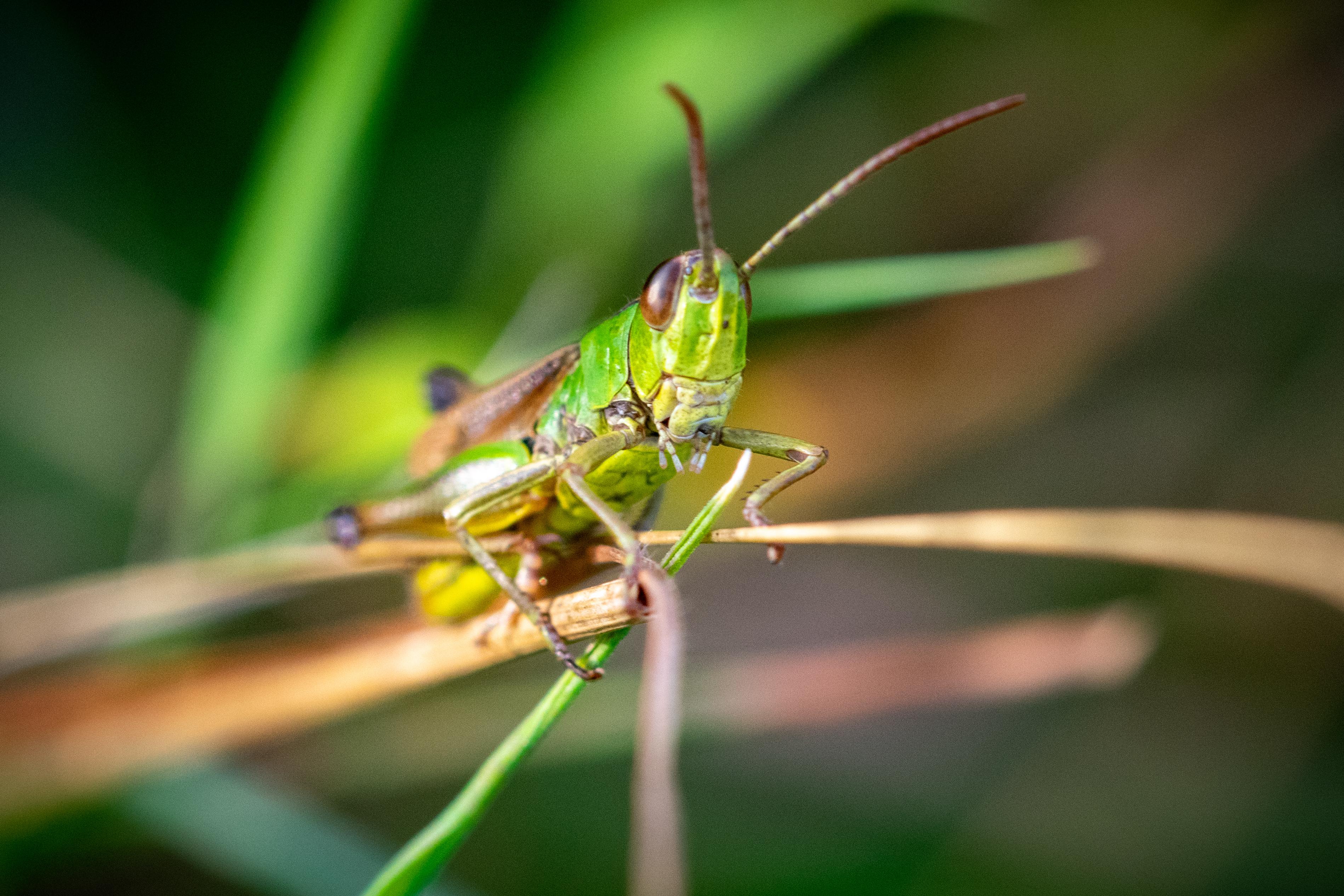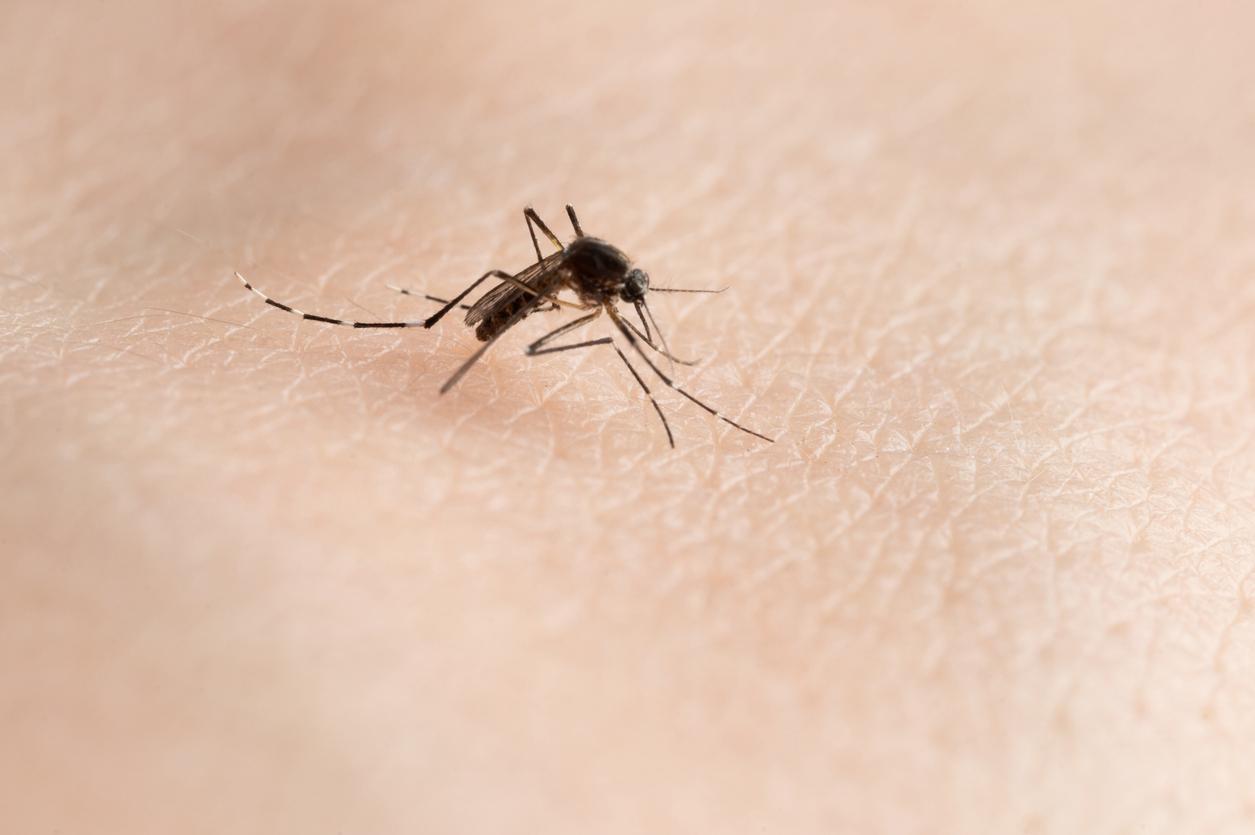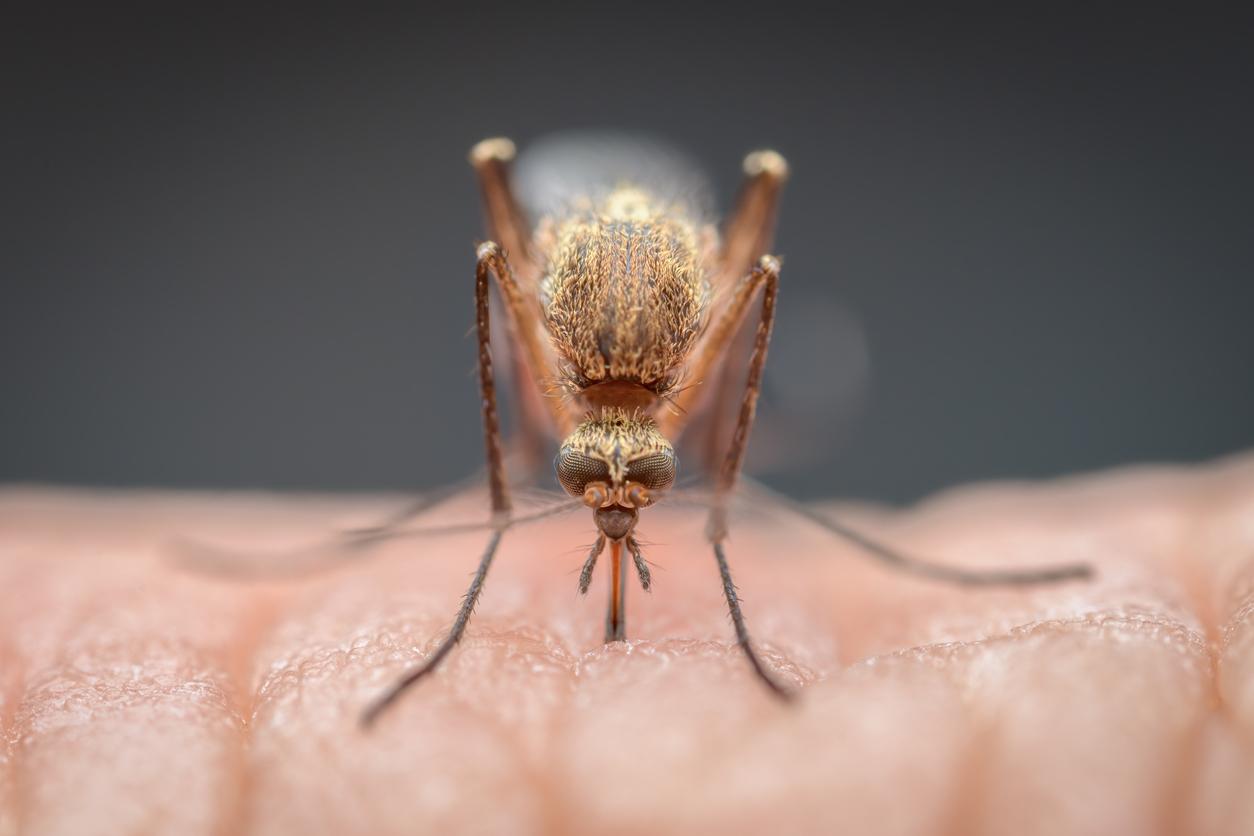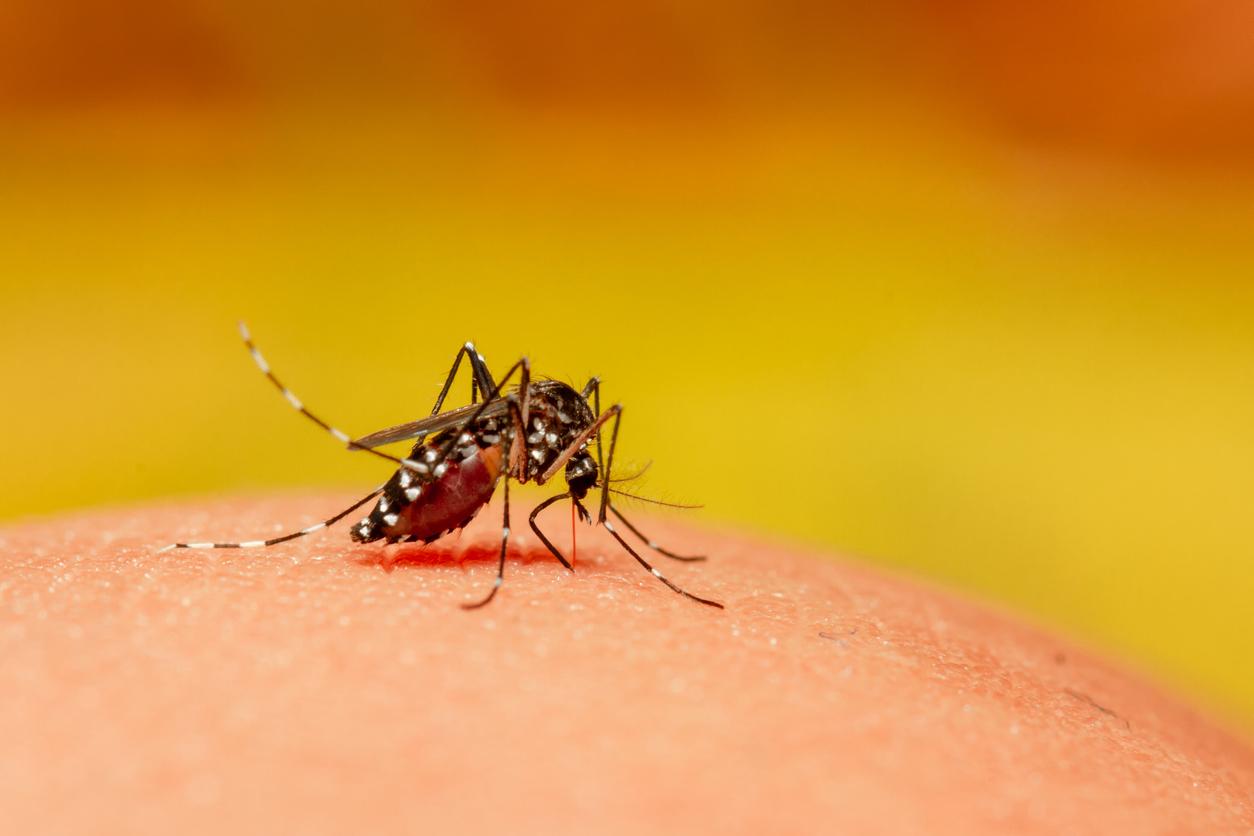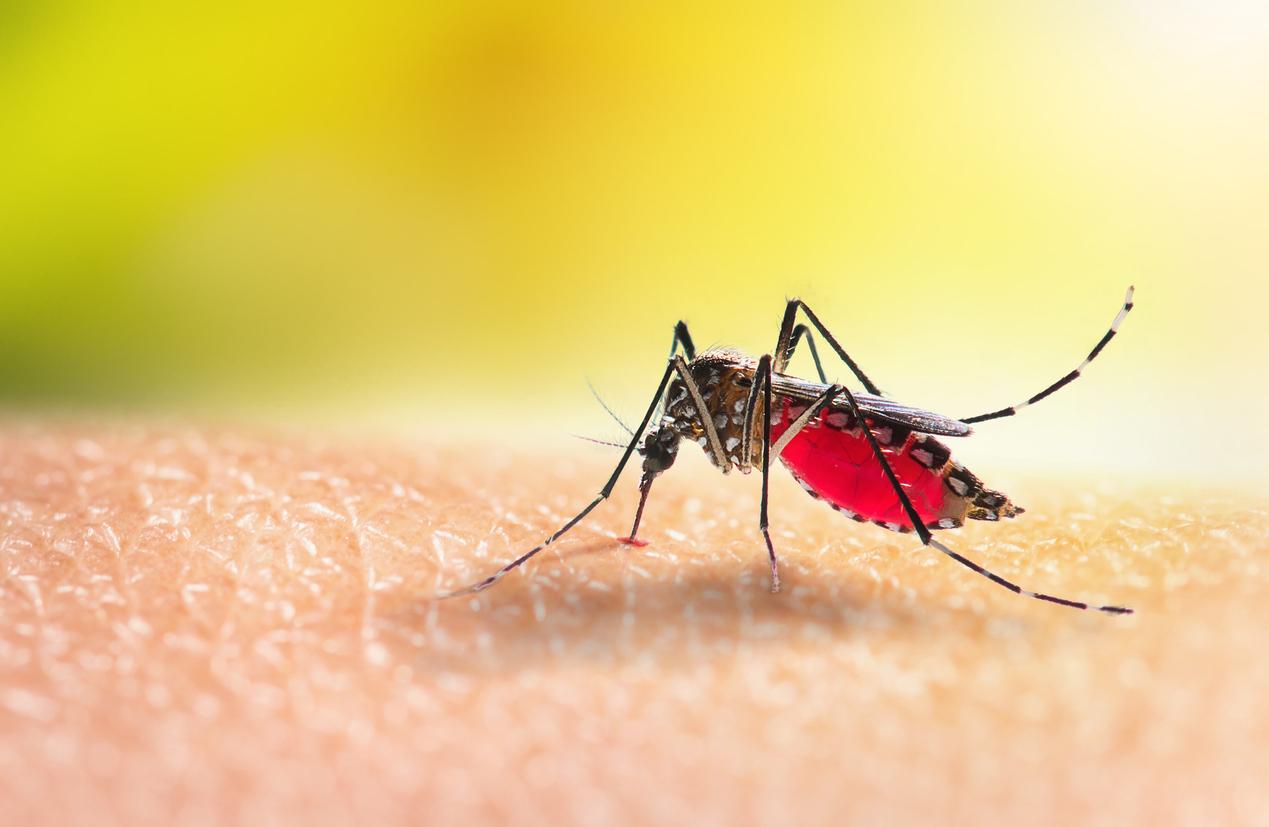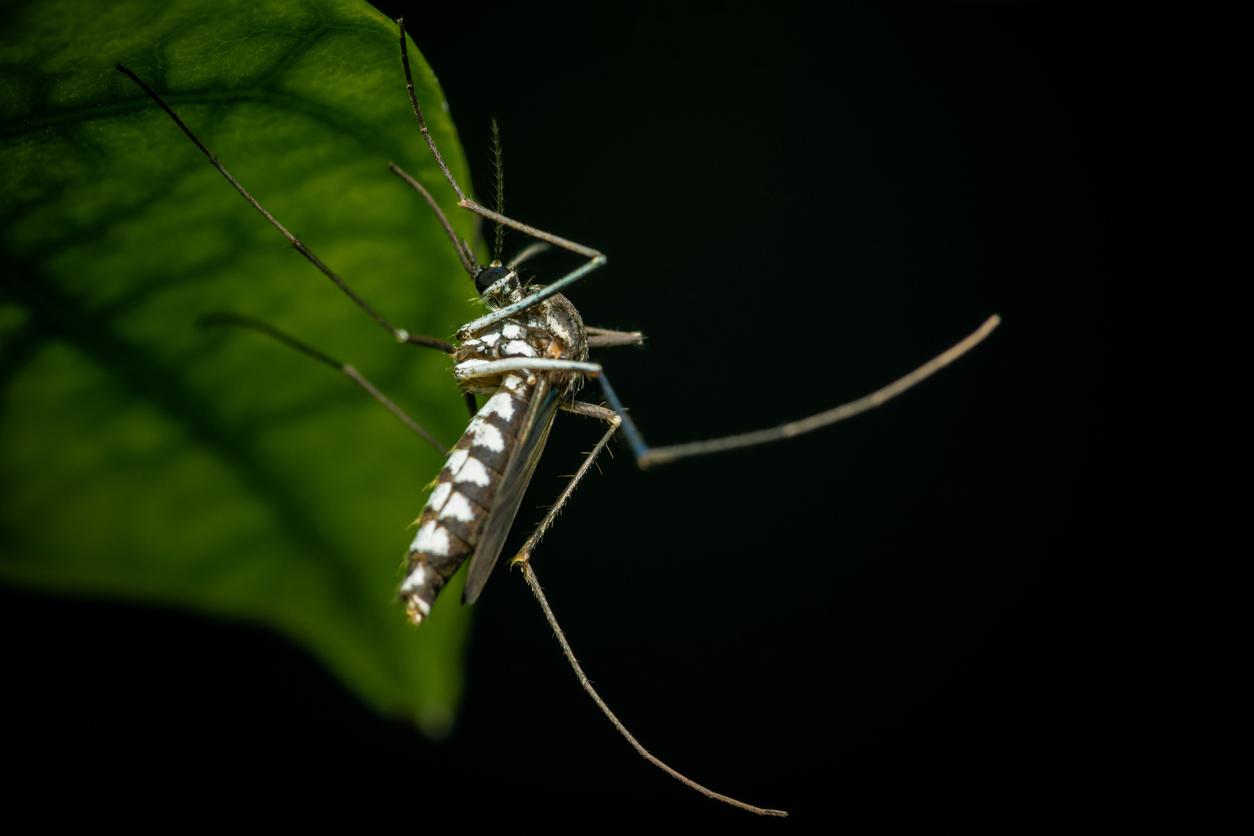When male mosquitoes are deafened by scientists, they stop mating with females. This method could limit the proliferation of these insects and the diseases they transmit.
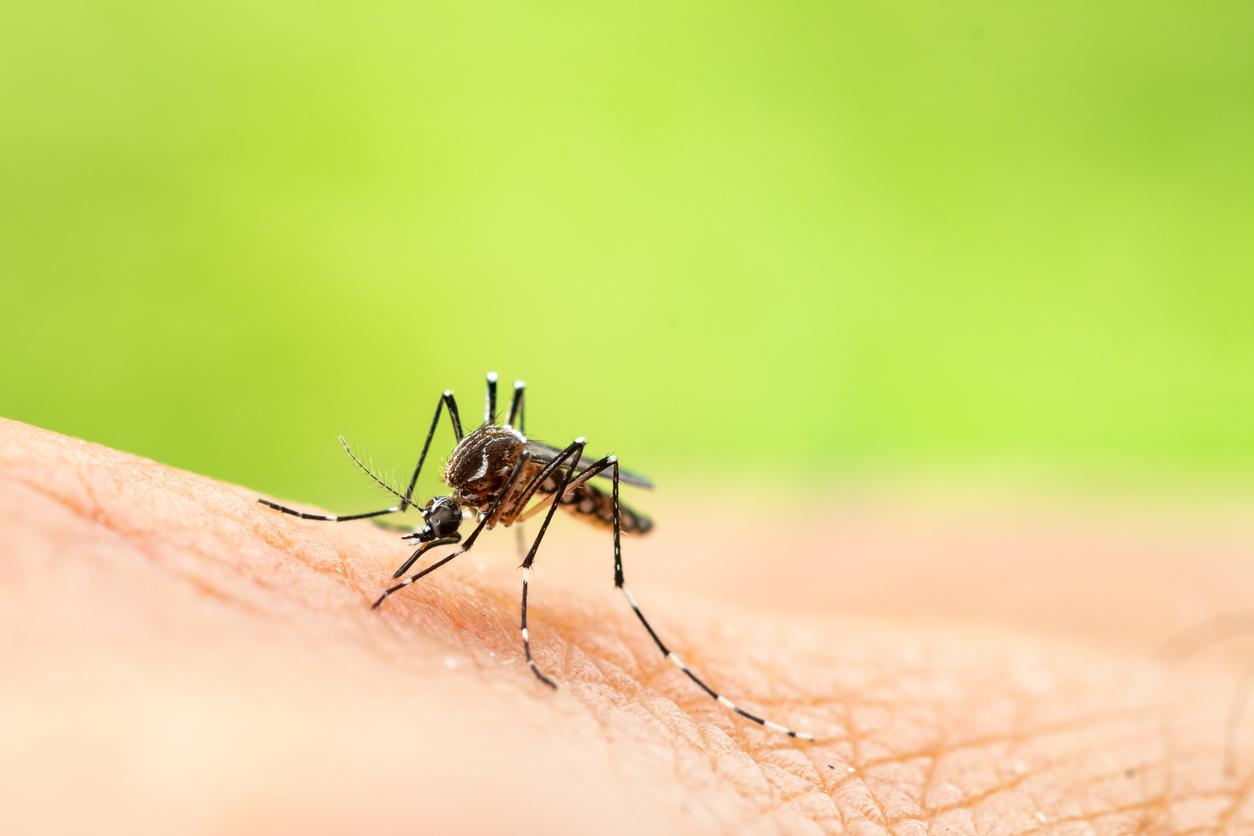
- Male mosquitoes need hearing to be able to reproduce.
- Deleting a single gene makes them sterile.
- This method could help prevent mosquitoes from breeding and limit the spread of certain diseases.
The beating of mosquito wings is inaudible to humans. For the small insect, this sound is crucial: it allows the male to identify the presence of a female and to reproduce. Researchers at the University of California – Santa Barbara, USA, have discovered that deafness prevents male mosquitoes from mating with females. In the specialist journal PNASthey explain that this could become a solution to fight against the transmission of diseases. Mosquitoes can notably spread dengue fever, the Zika virus and yellow fever.
Genetic modification to make mosquitoes deaf
The research team was interested in mosquitoes of the species Aedes aegypti. After observing their behavior during reproduction, they hypothesized that hearing was necessary for mating. Scientists therefore looked at the auditory neurons of these insects. “The team focused on a particular sensory channel called TRPVa – and the corresponding gene, trpVa – which is the mosquito analogue of a channel necessary for hearing in fruit flies.“, they specify in a press release. Thanks to the CRISPR-Cas9 genetic scissors, they neutralized the gene which codes for TRPVa in mosquitoes Aedes aegypti. This caused total deafness in insects.
Then, the American researchers placed these male mosquitoes with females to observe their behavior. “If they don’t hear the female’s wings beating, they’re not interested.”explains Craig Montell, one of the lead authors. In contrast, deafness does not have such significant effects on females. “The impact on the female is minimal, but it is absolute on the male.he summarizes.
Preventing mosquito breeding to fight disease
This better understanding of mosquito reproduction could help fight certain diseases. According to the authors, the mosquito Aedes aegypti transmits pathogens to approximately 400 million people per year.
For several years, blocking insect reproduction has been one of the means of control. “This technique works wonderfully against certain agricultural pests such as the California Mediterranean fruit fly.”indicate the authors. In the mosquito Aedes aegyptiit has limits because sterile mosquitoes must reach females for it to work: when the female mosquito mates, even with a sterile male mosquito, it no longer seeks other partners. “Currently, the technique does not sufficiently suppress mosquito populations so that they fall below the critical threshold and cause the populationnote the authors. Given the central role of hearing in mosquito courtship, trpVa could be a target to increase the effectiveness of this method.”










